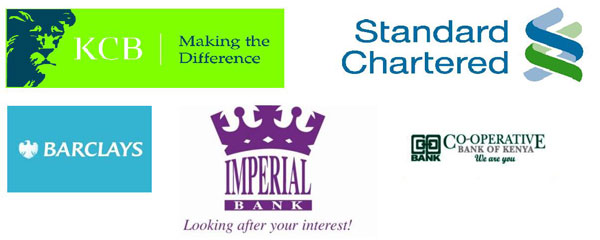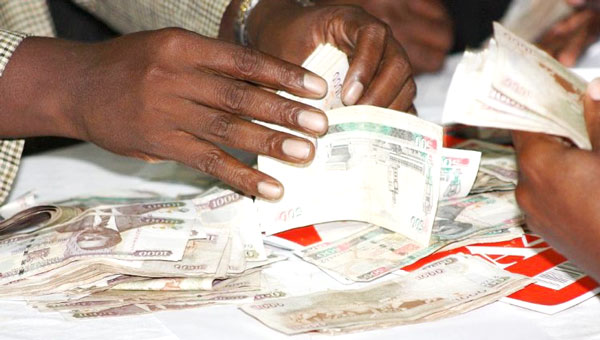| Money |
|---|
| Currency Exchange |
| Budgeting |
| Banking |
| Cashless payments |
| Insurance |
| Assessment Questions |
- The funny thing about how a bank works is that it functions because of our trust. We give a bank our money to keep it safe for us.
- We put money in banks as opposed to under our mattresses so that we can earn interest.
- However, the bank then loans out the same money to other people so it can also make money.
- Most of us start out with a Home Bank as children, but our financial needs as adults usually require a more sophisticated type of banking.
According to Wikipedia.com a bank is: A financial institution and a financial intermediary that accepts deposits and channels those deposits into lending activities, either directly or through capital markets. A bank connects customers that have capital deficits to customers with capital surpluses.


- In Kenya we have various banks, some of which are: Kenya Commercial Bank, Barclays Bank Imperial Bank Victoria Bank Standard Chartered Bank Co-operative Bank etc
Name other banks that you know...............................
Banks are critical to the functioning of our economy. Their primary function is to accept deposits from customers and then lend out this money to other customers.
When a deposit is made into a customers account this is referred to as a credit as money had gone in.

A debit is when a customer withdraws money from the account.
Interest is earned on the money in the account. The interest rate will vary according to each bank. In Kenya the typical interest rate is 18%. However, on loans customers pay an average interest of 24%.
1. Accepting deposits
A deposit is a sum of money paid into a bank. People deposit money into banks as a form of saving.
If the money in the bank is above acertain minimum the customer starts earning interest.
They can withdraw the money in future.
2. Lending money
Banks lend money to individuals, private businesses, the government and other public authorities in form of loans. Interest charged on loans is the main source of income for the banks.
3. Safekeeping of valuable items
Banks accept valuable items like title deeds, jewellery and wills for safekeeping for their customerss at a fee.
4. Money transfer facilities
Banks provide convinient method of transferring money through facilities such as credit transfers, telegraphic transfers, standing orders and by cheques.

5. Provision of Foreign Exchange
A person with foreign currency can convert it into local currency through the bank at the prevailing exchange rates.

6. Trustee services
Banks may undertake to manage the property left behind by a deceased client on behalf of its inheritors.
7. Act as intermediaries between savers and borrowers
This is by accepting deposits from people who have excess money to save an using the money to give loans.
The bank must always retain a small portion of deposits as cash in order to meet the needs of customers who may wish to withdraw cash.